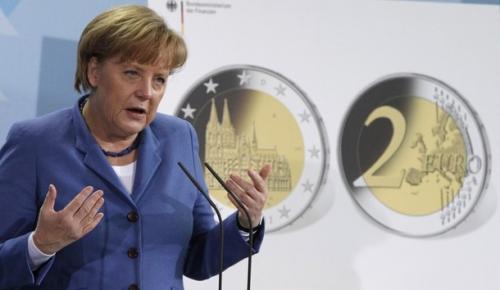Everyone is blaming Greece and the rest of the PIGS but let’s take a look at who benefited the most from the formation of a currency club that was supposedly too large to begin with.

The Euro has depreciated against the US Dollar by about 15% since it’s 2011 peak of almost 1.5 Dollars for every Euro. Many have argued that the Euro was overvalued for years and that currency markets are merely correcting for past discrepancies. Even during the Euro’s heyday, the imbalances between Europe’s rich north and “poor” south benefited the likes of Germany who were effectively working with an undervalued currency, whereas Greece had to deal with an overvalued currency. This was a boon for German exports in that they artificially deflated the price of German goods on the international market.
Now, as the Euro has lost some of its value, and the rest of the Eurozone considers kicking Greece out of the club, Germany stands to gain the most once again. As long as Germany is entwined to its poorer neighbors, its currency will be valued lower than it otherwise would have been – the more poor the country, the more likely that the Euro would be undervalued. Any depreciation in the exchange rate benefits the Deutsche economy. Germany is already the second largest exporter in the world and has recently held the top spot if only for a few months.
Furthermore, the capital rich countries of Europe’s economic core were more than eager to lend money to the peripheral countries at high interest rates – fuel to the fire! For years, Germany has been riding the wave of an undervalued currency and cheap markets for their surplus capital; and when the problems began to emerge, all fingers started to point towards the south. It seems like another case of a drug dealer blaming the user.
Germany, more than any other country, has benefited from the Eurozone’s premature expansion and subsequent fall. They should be the last to complain.